
In recent years, CBD has grown in popularity, with millions of people around the world now regularly using CBD products.
But can you use CBD oil for Multiple Sclerosis?
Disclaimer: This article may contain occasional references of CBD "for" a specific topic, for example, "CBD Oil for Multiple Sclerosis".
It is important for us to clarify that CBD is a food supplement that, while very useful for many people, is not sold "for" any specific purpose other than general health and wellbeing.
Any references of CBD for a specific subject are simply so we can clarify this to anyone searching for these terms.
CBD oil, otherwise known as cannabidiol, is a hemp plant extract (Cannabis Sativa). It is a cannabinoid compound. One of the remarkable properties of hemp is the number of cannabinoids contained within it.
There are about 100 other cannabinoids, each of which has its own properties, which, when combined with everything else in the hemp plant, make it an amazing food.
Cannabinoids influence the endocannabinoid system (ECS), which is a system of receptors spread throughout our brain, peripheral nervous system and many tissues and organs of our body.
The ECS appears to have a role in a homeostasis mechanism, which ensures we can function effectively regardless of the demands we place on our body through activity and environment.
We know that balance within our immune system is essential to our overall health since an overactive immune system can be the root cause of many issues.
The most infamous cannabinoid is probably THC. Though having therapeutic potential, it is more known for its ability to get us high or stoned due to its high levels found in street cannabis.
For medical marijuana to be sold legally in the UK, THC levels are strictly limited to trace or "contaminant" levels only. Many poorly informed companies believe this level to be 0.2%, but this is a common myth - the 0.2% limit strictly applies to the growing hemp plant only and not the final product sold.
When the hemp plant is grown carefully by specialist farmers, which is the case with all CBD ONE products, the CBD and other cannabinoid levels can be maximised naturally, ensuring a plant abundant in these special compounds which deliver effectiveness and quality.
Sadly, most CBD products out there aren't made from plants grown by specialists and are often the by-product of farming techniques more suited to producing industrial fibres than true wellbeing products.
This means that all the compounds in our legal cannabis products are at their optimum, which creates a synergy known as the entourage effect. This synergy combines cannabinoids (like CBD) with terpenes which give cannabis its unique taste and smell but also have positive effects on our well being and flavonoids.
Too many CBD products on the market today do not have this vital synergy and, therefore, are lacking in their effect. Fortunately, here at CBD One, every one of our products is made to deliver the entourage effect in all its glory!
CBD is legal in the UK provided it is sold as a supplement and therefore has no authorised medical uses or claims. It must also contain less than 1mg of THC or 0.05% in a bottle.
There is enormous debate about properly controlling the quality of CBD products on the market. This is important for regulation to be brought in to ensure the public is protected from poor quality products that may make claims that are simply wrong.
A straightforward example is a well-known brand from Ireland which has zero CBD in it, despite them claiming otherwise. I have had their reps come to my clinic making bizarre claims that are simply lies. Sadly, the agents often do not know any better.
These companies are preying on vulnerable people and are giving CBD a bad name. Their days are numbered.
Another restriction is that CBD cannot be used as an isolate in a food product.
This simply means a process can be used to extract pure CBD from the cannabis plant. This pure CBD is known as an isolate because it has quite literally been isolated from everything else contained in the plant. It can be used in body products and patches but not for oral ingestion.
While CBD isolate may have some value for helping people, it is not nearly as effective as having a full spectrum plant extract that harnesses nature's synergy.

According to the National Multiple Sclerosis Society, multiple sclerosis is an "immune-mediated" disease. This means that the body's immune system attacks itself and begins to cause damage to itself, which affects the central nervous system (comprising the brain and spinal cord) and damages the myelin sheath that covers our nerves.
The myelin sheath helps to quickly transmit messages up and down the nerve. Our body repairs the damaged area to keep us functioning well, but this creates scar tissue which is not as good at transmitting signals as a healthy myelin sheath.
In time this damage means we begin to get all manner of symptoms such as inability to move a limb as well as we would like, balance issues and even problems with our speech. It entirely depends on where the damage has occurred in our body and the kind of symptoms presented, which is part of the reason multiple sclerosis can be so difficult to diagnose.
In this respect, it means multiple sclerosis is an unusual disease in that the symptom picture can be very different in different people.
One common symptom that many multiple sclerosis patients experience is extreme fatigue. Another can be excruciating muscle spasms. Multiple sclerosis-related spasticities are one of the most common conditions treated by prescription medications like baclofen and diazepam (Valium).
There is no one specific cause for multiple sclerosis. Still, things that appear to contribute are a diet of highly refined and processed foods, a dysfunctional digestive system, and possibly some viral influence (there can be clusters of multiple sclerosis in any area). Some evidence points to amalgam fillings that contain mercury and even root canal procedures.
It is a complex picture, and the key to helping yourself is to follow good health behaviour with exercise, nutritious whole foods, reduce dairy products to a minimum or zero and take some high-quality supplements.
There are a whole group of supplements that have been recommended for MS patients as follows:
Several herbs may be of use for those suffering from multiple sclerosis, and I would suggest you use trial and error to see how you do with them to see if they help. Give yourself a good three months with each to see how you feel.
The great thing with herbs is that they are remarkably safe to use, so it is unlikely they will cause you any harm, and you may see some benefits for little risk.
If you are particularly interested in the potential herbs you may have, I suggest you book an appointment with a medical herbalist.
Ginkgo Biloba may help combat fatigue and reduce the damaging effects of free radicals.
St John's Wort (hypericum) is a mood lifter and may help combat the depression that is a frequent companion to MS patients.
Valerian may aid sleep which can be a common problem.
Panax Ginseng, otherwise known as Asian Ginseng, has been shown to help fatigue and improve strength.
And last but by no means least is cannabis which has been known for a long time and used by many multiple sclerosis patients, significantly to help with muscle spasticity though it may have other benefits. Some doctors can prescribe medical cannabis called Sativex specifically for muscle spasms.
Does the part of cannabis known as CBD have a role to play?
Who knows? Putting to one side for a moment what it may or not do for multiple sclerosis, I take my CBD much like one would take any health supplement; it is quite simply good for you! So I take it regularly just for that reason alone.
If you are hoping for a miracle from taking one supplement, please think again.
For all its excellent potential properties, CBD oils are supplements with no medical applications.
When looking at health issues from a broader perspective, we must consider all the factors that lead to diseases, such as a sedentary lifestyle, poor diet, toxic environment and even your state of mind.
These complex issues require many factors to be improved to give your body any chance of seeing positive, healthy changes.
Do not expect a magic pill or oil to make you healthy on its own. Good health requires an investment from yourself as well as your physician.
I mentioned Sativex above, a medical form of cannabis that certain doctors can prescribe.
CBD Oil is a food supplement available to buy on the high street. They are not the same product and should be treated as such.
On the other hand, Sativex is a mouth spray flavoured with peppermint that contains a 50/50 mix of both CBD and THC. THC is the cannabinoid that can get you high and is a controlled substance in many parts, including the UK.
This means that Sativex may well have a psychoactive 'high' effect on you, something that not everyone likes or can tolerate.
It also contains a synthetic cannabinoid called Marinol and another called Cesamet.
It seems odd to me that, when we have the remarkable properties of cannabis and a myriad of cannabinoids, terpenes and flavonoids in the plant, a drug company would want to use synthetic products to interact with the natural.
There is a simple reason for this, and it is cynical. It is all about protecting profits and controlling the market via patents.
The whole cannabis plant cannot be patented, so the drug company pulls it apart, takes parts of it that it deems useful and throws in its own ingredients for good measure. They then give it a name, patent it and lean on governments to allow it so they can sell it, but nobody else can.
There is no doubt Sativex appears to help people, but there are users who find it an unpleasant experience with lots of side effects. Such is the way with any pharmaceutical concoction: it can be effective but come with added complications.
When people use Sativex, they are encouraged to start on a low dose and slowly increase it until they get the optimum effect. That seems entirely sensible when taking a substance that may well get you high.
We have an exciting array of products at CBD ONE, which means you have many different options to choose from, so you should always be able to find a product that suits you.
Firstly we have our range of CBD oils that has been well established for several years now, from our raw (as close to nature as you can get) Life Edition oil to our three Signature Blend oils that go from 500mg to 1000mg, and our big-hitting and potent 2000mg Signature Blend No3.
These oils are taken under the tongue in one to three drops, allowed to stay there for a couple of minutes to absorb into the bloodstream, and then swallowed. I love taking our oils before bed as I wind down in the evening, but they can be taken at any time of the day.
We then have our water-soluble Absorb range that can be added to any hot or cold drinks or taken orally and swallowed without the need to go under the tongue. Because these are often combined with a hot drink such as tea or coffee, I find the combination a little more energising than when I take CBD as oil drops under my tongue.
We also have our wonderful Hatcha powder which can be added to drinks, is delicious in smoothies and hot chocolate and can also be baked with, provided you do not bake at over 160°C - making it perfect for baking delicious biscuits and brownies.
We now also have our CBD patches which are available in 15mg and 30mg doses and provide a steady stream of pure CBD for 36 hours and are an excellent way to supplement a full-spectrum oil or Absorb product.
The bottom line is that there haven't been enough clinical trials to provide definitive answers about the effects of using CBD oil for multiple sclerosis.
What has been shown in numerous studies is that CBD is well tolerated by most people and has very few, if any, side effects; so it's well worth testing to see if it works for you.
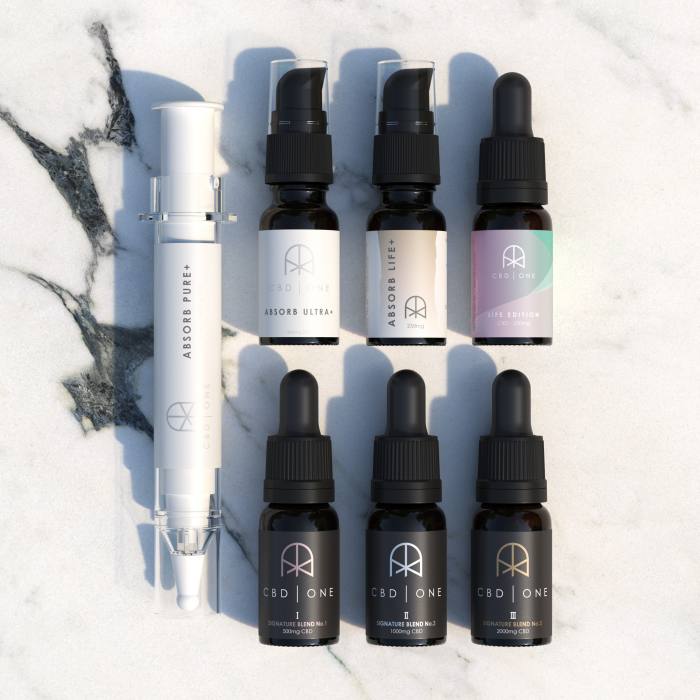
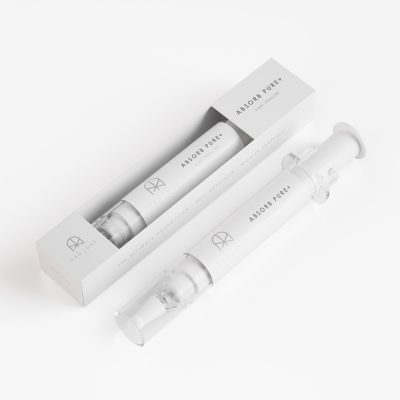
Bioavailability:?Bioavailability | 99% |
CBD content:?CBD content | 800mg | 1600mg | 4000mg |
Cannabinoid spectrum:?Cannabinoid spectrum | Full |
| Daily use: | Once daily |
Best for:?Best for | Powerful water-soluble option |
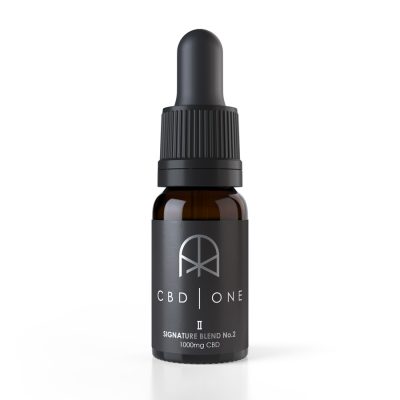
Bioavailability:?Bioavailability | 12 % |
CBD content:?CBD content | 1000mg | 2000mg | 5000mg |
Cannabinoid spectrum:?Cannabinoid spectrum | Full |
| Daily use: | 1-3 times |
Best for:?Best for | All round oil |
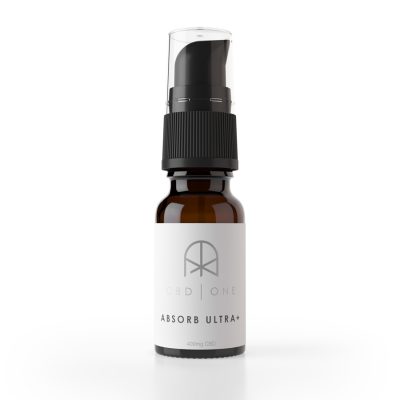
Bioavailability:?Bioavailability | 99% |
CBD content:?CBD content | 400mg | 800mg | 2000mg |
Cannabinoid spectrum:?Cannabinoid spectrum | Full |
| Daily use: | Once daily |
Best for:?Best for | Great all-rounder |
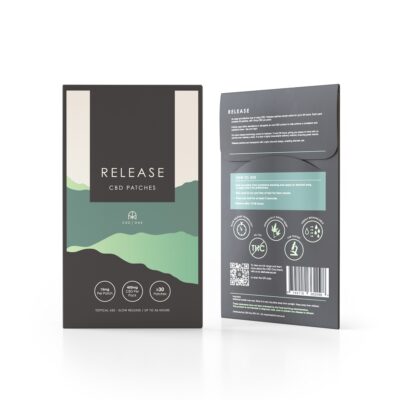
Bioavailability:?Bioavailability | 40%+ |
CBD Content:?CBD Content | 450mg | 900mg | 1350mg |
Cannabinoid spectrum:?Cannabinoid spectrum | Pure CBD |
| Daily use: | Once |
Best for:?Best for | Round the clock super-effective dosing |